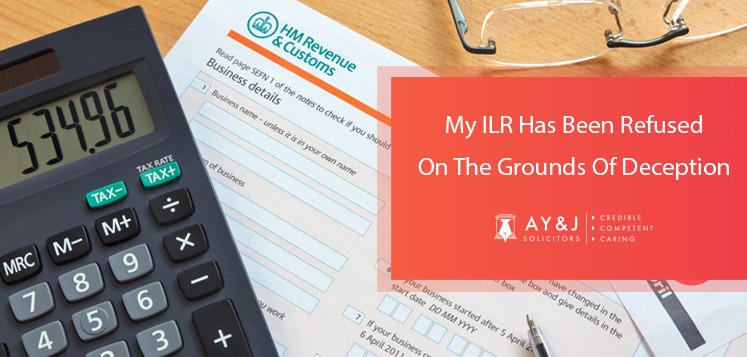Disclaimer: The information in this blog is accurate as of its publication date. Any updates after that date are not reflected here.
With its aggressive (and some would say unrealistic) immigration reduction targets, the UK Government needs little excuse these days to refuse migrants leave to enter or remain in Britain. Lately, immigration boards have been full of stories about people being refused Indefinite Leave to Remain (ILR) or entry into the UK on the grounds of alleged deception.
Not only can non-EEA nationals be refused entry clearance or ILR for falsifying supporting material such as immigration documents and work records, but incomplete and/or fraudulent tax records or non-payment of tax can also cause applications to be refused on the grounds of alleged deception. In fact, all levels of an applicant’s professional life may be subject to scrutiny, meaning prospective migrants must ensure all aspects of their personal and business affairs are in order and squeaky clean.
Table of Contents
How is deception defined in immigration law?
Section 76(2) of the Nationality, Immigration and Asylum Act 2002 gives the Secretary of State the power to revoke a person’s indefinite leave to enter or remain in the UK where a person has obtained that leave by deception.
The deception must be instigated by the applicant and constitute a material factor in the decision whether to grant leave (although it does not have to be the sole effective factor). Deception may relate to a verbal statement or conduct accompanied by silence (e.g. the silent production of a forged or altered document). The offence can be committed on any occasion where a person seeks or obtains entry to the UK, irrespective of whether they have continuing leave. It also applies where a person seeks or obtains leave to remain.
The existence of deception must be proved to the usual criminal standard of beyond reasonable doubt.
Deception is one of the most serious crimes in immigration law and the consequences can extend far beyond simply being refused entry or leave to remain. ILR can be revoked, a criminal prosecution brought and a prison sentence imposed on anyone found guilty of deliberately deceiving the Home Office.
What is a ‘false’ document?
A false document was defined by Lord Bassam in the March 2008 House of Lords debate as ‘a document that is forged or has been altered to give false information’.
To avoid any possible problems when submitting an application, it is vital to have all documents checked by an experienced immigration solicitor who can advise you that they are of appropriate quality and do not appear in any way ‘suspect’.
Letters from banks, educational institutions or other bodies must be on letter-headed paper and signed in ink, dated and contain the contact details of the signatory. It is also vital to have your documents checked for inconsistencies in spelling or, in the case of those from the HMRC, figures. It is safer to pay a little extra money to get accurate advice on providing correct documents than risk refusal of entry clearance or ILR for alleged deception.
What is non-disclosure of material facts?
The deliberate falsification of documents is a straight-forward example of deception. Non-disclosure of material facts is a much greyer area and one where specialist legal advice is a must.
Take tax for example. A migrant, let’s call her ‘A’, is the director of a company and wishes to apply for ILR. Immigration officials have discovered, following an HMRC check that she failed to file certain self-assessment forms. This is despite her accountant informing her that the forms in question did not have to be submitted.
The Home Office may refuse ILR on the grounds of deception, citing that A was not paying the correct tax on her earnings, therefore, they are deemed as fabricated or not genuine income.
What can I do if I have been refused ILR on the grounds of deception?
Depending on the circumstances, your solicitor may ask for an Administrative Review. In the case of A above, a covering letter from an immigration lawyer and an Administrative Review may be sufficient to have the charge of deception removed.
If an Administrative Review proves unsuccessful, an appeal may be launched, but only on human rights grounds. Using A as an example again, if she has a husband and children in the UK, she may argue that failing to grant her ILR disproportionately interferes with her family life.
If there are no grounds for a human rights appeal, then the only option is to challenge the decision through Judicial Review proceedings.
In Summary
Deception is a serious offence in UK law and any allegation of it should not be taken lightly. If you have been accused of deception, it is imperative that you contact an experienced immigration solicitor immediately to challenge the ruling.
A Y & J Solicitors has a team of specialist immigration lawyers. Please contact the expert team at A Y & J Solicitors, should you need any professional help with your Entry Clearance or Indefinite Leave to Remain applications.
Disclaimer: No material/information provided on this website should be construed as legal advice. Readers should seek an appropriate professional advice for their immigration matters.







